
Ariel Amir
Harvard University
USA
EMBO | EMBL Symposium
EMBO and EMBL are committed to sharing research advances and sustaining scientific interaction throughout the coronavirus pandemic. We are delighted to announce that the conference is going virtual and invite you to join us online. The virtual conference includes talks from invited speakers, short talk presenters, online group discussions and networking opportunities.
The current speed at which high-throughput data are produced and the growing number of studies that use not only one but multiple omics technologies on the same samples offers tremendous opportunities for enhancing our molecular understanding of biological systems. One of the biggest challenges in the era of multiomics is the integration and interpretation of the diverse large-scale omics data in a way that provides biological insights. This requires the development of statistical, mathematical and computational tools and – equally important – experimental strategies to follow up on hypotheses generated by large-scale data. Together, these computational and experimental tools will enable us to address novel questions and identify biological mechanisms.
This is the third in series of EMBL | EMBO symposia focusing on challenges and opportunities in data integration. Our goal is to provide a platform for discussing and presenting strategies for multiomics data integration that go beyond descriptive analyses and aim towards mechanistic, biological interpretation. For this we are inviting scientists from different fields that share their enthusiasm for integrating multi-modal data to understand biological systems. Traditionally, the audience of the meeting has been very diverse in terms of biology, yet very united in their interest in discussing about how to integrate and learn from data. Presenters are therefore asked to specifically highlight the integrative aspect of their work and how it helped in understanding biology.

Harvard University
USA

Stanford University
USA
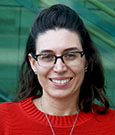
University of California, San Francisco
USA

University of Southern California
USA

German Cancer Research Center
Germany

Stanford University
USA

Humboldt Universität zu Berlin
Germany

University of California, San Francisco
USA

Icahn School of Medicine at Mount Sinai
USA

EMBL Heidelberg
Germany
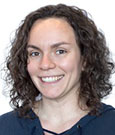
EMBL-EBI Hinxton
UK
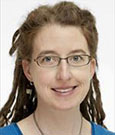
Gladstone Institutes and University of California, San Francisco
USA
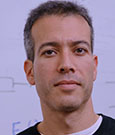
Weizmann Institute of Science
Israel
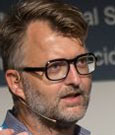
Vrije Universiteit Amsterdam
The Netherlands

MRC London Institute of Medical Sciences
UK
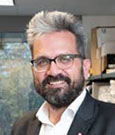
University of California, San Francisco
USA

ETH Zürich
Switzerland

EMBL Heidelberg
Germany
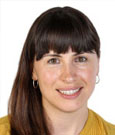
EMBL Heidelberg
Germany

EMBL Heidelberg
Germany
Got something to say? Tweet it! #EESOmics
All times in the programme below are shown as the time in Europe/Berlin.
To find out the equivalent time zone in your location, enter Berlin, the programme time and date along with your city into the Time Zone Converter.
| Time | Speaker |
|---|---|
| 15:00 – 15:10 | Opening remarks |
| 15:10 – 18:20 | Session 1 Chairs: Evangelia Petsalaki and Judith Zaugg |
| 15:10 – 15:35 | Dissecting the regulation of hematopoiesis by lineage tracing and single-cell omics Thomas Höfer – German Cancer Research Center, Germany AVAILABLE ON DEMAND AFTER LIVE STREAM |
| 15:35 – 15:50 | High-throughput metabolome profiling predicts novel TOR signaling-related genes Duncan Holbrook-Smith – ETH Zürich, Switzerland AVAILABLE ON DEMAND AFTER LIVE STREAM |
| 15:50 – 16:15 | The Ups and Downs of Protein Expression Regulation Christine Vogel – New York University, USA AVAILABLE ON DEMAND AFTER LIVE STREAM |
| 16:15 – 16:30 | Multiomics landscape of the ageing human mesenchymal stromal cells Mang Ching Lai – EMBL Heidelberg, Germany AVAILABLE ON DEMAND AFTER LIVE STREAM |
| 16:30 – 16:45 | Break |
| 16:45 – 17:10 | To bin or not to bin: analyzing single-cell growth data Ariel Amir – Harvard University, USA AVAILABLE ON DEMAND AFTER LIVE STREAM |
| 17:10 – 17:25 | Signature Regulatory Clustering (SiRCle) model to understand cancer regulation through semi-supervised integration Christina Schmidt – University of Cambridge, UK AVAILABLE ON DEMAND AFTER LIVE STREAM |
| 17:25 – 17:50 | Sequence-structure-function modeling for DNA Katie Pollard – Gladstone Institutes and University of California, San Francisco, USA AVAILABLE ON DEMAND AFTER LIVE STREAM |
| 17:50 – 18:15 | Genotype to phenotype mapping of tumorigenesis at single cell resolution Christina Curtis – Stanford University, USA AVAILABLE ON DEMAND AFTER LIVE STREAM |
| 18:15 – 18:50 | Break |
| 18:50 – 19:50 | Virtual Poster Session 1 (A-L) and Meet the Pre-recorded Short Talk Speakers (A-M) |
| 19:50 – 20:35 | Panel Discussion Day 1 Chairs: Evangelia Petsalaki and Judith Zaugg Panelists Ariel Amir – Harvard University, USA Christina Curtis – Stanford University, USA Thomas Höfer – German Cancer Research Center, Germany Katie Pollard – Gladstone Institutes and University of California, San Francisco, USA Christine Vogel – New York University, USA |
| 20:35 – 20:40 | Transition to Meet the Speakers Day 1 |
| 20:40 – 21:10 | Meet the Speakers Day 1 Ariel Amir, Christina Curtis, Thomas Höfer, Katie Pollard, Christine Vogel and short talk speakers Duncan Holbrook-Smith, Mang Ching Lai, Christina Schmidt |
| 21:10 – 21:15 | Transition over to Virtual Speed Networking |
| 21:15 – 22:00 | Social programme: Virtual speed networking |
Digital posters and pre-recorded talks as well as discussion channels will be available for registered participants throughout the whole virtual meeting.
| Time | Speaker |
|---|---|
| 14:30 – 15:00 | Social programme: Meet other participants in the Social Lounge and chat ahead of the day’s talks (link available in the conference platform) |
| 15:00 – 18:05 | Session 2 Chairs: Edda Klipp and Nevan Krogan |
| 15:00 – 15:25 | Chromatin conformation during early embryonic development Juanma Vaquerizas – MRC London Institute of Medical Sciences, UK AVAILABLE ON DEMAND AFTER LIVE STREAM |
| 15:25 – 15:40 | The pathobiology of Mycobacterium abscessus revealed through phenogenomic analysis Lucas Boeck – University of Basel, Switzerland AVAILABLE ON DEMAND AFTER LIVE STREAM |
| 15:40 – 16:05 | Harnessing big data for personalized medicine Eran Segal – Weizmann Institute of Science, Israel AVAILABLE ON DEMAND AFTER LIVE STREAM |
| 16:05 – 16:20 | Computational pharmacogenomics identifies synergistic statin-compound combinations that target the mevalonate pathway for breast cancer treatment Deena Gendoo – University of Birmingham, UK AVAILABLE ON DEMAND AFTER LIVE STREAM |
| 16:20 – 16:35 | Break |
| 16:35 – 17:00 | Incorporating proteome constraints in genome-scale metabolic models Bas Teusink – Vrije Universiteit Amsterdam, The Netherlands AVAILABLE ON DEMAND AFTER LIVE STREAM |
| 17:00 – 17:15 | Uncovering molecular-aging trajectories in budding yeast through multidimensional proteomics Mario Leutert – University of Washington, USA AVAILABLE ON DEMAND AFTER LIVE STREAM |
| 17:15 – 17:40 | Mechanistic insights into functional effects of point mutations at the systems level Tanja Kortemme – University of California, San Francisco, USA AVAILABLE ON DEMAND AFTER LIVE STREAM |
| 17:40 – 18:05 | Integration of constraint-based models and metabolomics to elucidate tumor-stromal crosstalk in colorectal cancer Stacey Finley – University of Southern California, San Francisco, USA AVAILABLE ON DEMAND AFTER LIVE STREAM |
| 18:05 – 18:35 | Break |
| 18:35 – 19:35 | Virtual Poster Session 2 (M-Z) and Meet the Pre-recorded Short Talk Speakers (N-Z) |
| 19:35 – 20:20 | Panel Discussion Day 2 Chairs: Edda Klipp and Nevan Krogan Panelists: Stacey Finley – University of Southern California, San Francisco, USA Tanja Kortemme – University of California, San Francisco, USA Juanma Vaquerizas – Max Planck Institute for Molecular Biomedicine Muenster, Germany |
| 20:20 – 20:25 | Transition to Meet the Speakers Day 2 |
| 20:25 – 20:55 | Meet the Speakers Day 2 Stacey Finley, Tanja Kortemme, Juanma Vaquerizas and short talk speakers Lucas Boeck, Deena Gendoo, Mario Leutert |
| 20:55 – 21:00 | Transition over to Living Room Concert (followed by Bar Mixer) |
| 21:00 – 22:00 | Social programme: Living Room Concert with Lazy Fur (30 minutes) followed by Bar Mixer (30 minutes) |
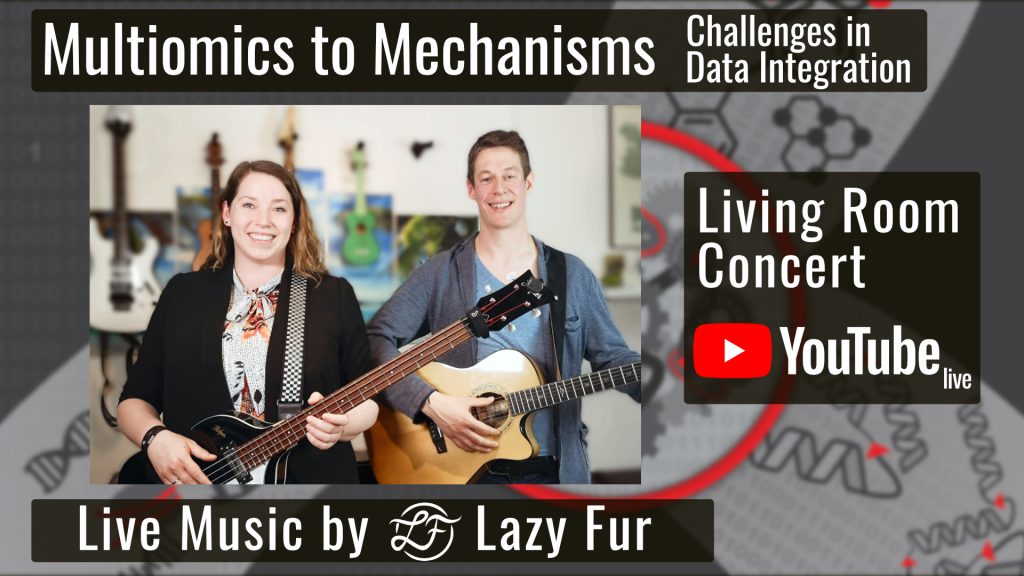
Digital posters and pre-recorded talks as well as discussion channels will be available for registered participants throughout the whole virtual meeting.
| Time | Speaker |
|---|---|
| 15:00 – 18:40 | Session 3 Chairs: Thomas Höfer and Uwe Sauer |
| 15:00 – 15:25 | Identification of phenotype-specific networks from paired gene expression-cell shape imaging data Evangelia Petsalaki – EMBL-EBI Hinxton, UK AVAILABLE ON DEMAND AFTER LIVE STREAM |
| 15:25 – 15:40 | Integrated multi-omic analysis of a rare inborn error of metabolism Patrick Forny – University Children’s Hospital, Zurich AVAILABLE ON DEMAND AFTER LIVE STREAM |
| 15:40 – 16:05 | Molecular function of chromatin regulators linked to neurodevelopmental disorders Kyung-Min Noh – EMBL Heidelberg, Germany AVAILABLE ON DEMAND AFTER LIVE STREAM |
| 16:05 – 16:20 | Break |
| 16:20 – 16:45 | Understanding a life – integration of time-resolved population and single cell data for a yeast cell from birth to division Edda Klipp – Humboldt Universität zu Berlin, Germany AVAILABLE ON DEMAND AFTER LIVE STREAM |
| 16:45 – 17:00 | Multi-omics reveals clinically relevant proliferative drive associated with mTOR-MYC-OXPHOS activity in chronic lymphocytic leukemia Junyan Lu – EMBL Heidelberg, Germany AVAILABLE ON DEMAND AFTER LIVE STREAM |
| 17:00 – 17:25 | Combining genetics and proteomics data for integrative structure determination Ignacia Echeverria Riesco – University of California, San Francisco, USA AVAILABLE ON DEMAND AFTER LIVE STREAM |
| 17:25 – 17:35 | Break |
| 17:35 – 18:00 | Systematic investigation of gene function in gut bacteria using randomly barcoded transposon insertion libraries KC Huang – Stanford University, USA AVAILABLE ON DEMAND AFTER LIVE STREAM |
| 18:00 – 18:15 | Extracting Mechanistic Insight into SARS-CoV-2 and Emerging Variants by Integrating Orthogonal Molecular Datasets Mehdi Bouhaddou – QCRG, University of California, San Francisco, USA AVAILABLE ON DEMAND AFTER LIVE STREAM |
| 18:15 – 18:40 | Chimeric genes, neogenes and hybrid regulatory elements control infection and cell specification Ivan Marazzi – Icahn School of Medicine at Mount Sinai, USA AVAILABLE ON DEMAND AFTER LIVE STREAM |
| 18:40 – 19:10 | Break |
| 19:10 – 20:10 | Virtual Poster Session 3 (All) |
| 20:10 – 20:55 | Panel Discussion Day 3 Speakers Chairs: Thomas Höfer and Uwe Sauer Panelists: Ignacia Echeverria Riesco – University of California, San Francisco, USA KC Huang – Stanford University, USA Edda Klipp – Humboldt Universität zu Berlin, Germany Ivan Marazzi – Icahn School of Medicine at Mount Sinai, USA Kyung-Min Noh – EMBL Heidelberg, Germany Evangelia Petsalaki – EMBL-EBI Hinxton, UK Bas Teusink – Vrije Universiteit Amsterdam, The Netherlands |
| 20:55 – 21:00 | Transition to Meet the Speakers Day 3 |
| 21:00 – 21:30 | Meet the Speakers Day 3 Ignacia Echeverria Riesco, KC Huang, Edda Klipp, Ivan Marazzi, Kyung-Min Noh, Evangelia Petsalaki, Bas Teusink and short talk speakers Patrick Forny, Junyan Lu, Mehdi Bouhaddou |
| 21:30 – 21:35 | Transition over to Closing Remarks |
| 21:35 – 21:45 | Closing remarks and Poster Prizes |
Digital posters and pre-recorded talks as well as discussion channels will be available for registered participants throughout the whole virtual meeting.
Registration Fees (include access to all of the talks, digital poster sessions and online group discussions, and help us cover our costs to run the event. For further information please refer to the FAQ page):
| Academia | 190 Euro |
| PhD Student | 140 Euro |
| Industry | 240 Euro |
| EMBL Staff | Intranet access |
Accredited journalists may be eligible to register for a complimentary registration. Registrants may be required to provide accreditation or equivalent proof of press membership after registration. Please contact Maria Bacadare for more information.
Registration will be on a first-come first-served basis. Your place can only be confirmed after payment of the registration fee.
Types of payments accepted are international bank transfers and credit card payments.
Abstract submission for this conference is closed. For enquiries about submitting a late abstract for a poster presentation, please contact Nathalie Sneider.
All academic and student registrants are invited to apply for a registration fee waiver, provided by the EMBL Advanced Training Centre Corporate Partnership Programme and EMBO. The registration fee waiver covers the registration sum that you have paid to attend the meeting. Conference participants are not required to pre-pay the registration fee to be selected for a fee waiver for a virtual meeting. If you have already paid the registration fee and are awarded a fee waiver, it will be reimbursed after the meeting. Course participants are required to pay the course fee in advance, which will then be reimbursed after the recipient has attended the course.
For participants and speakers with childcare responsibilities there is the possibility to apply for a grant, provided by the EMBL Advanced Training Centre Corporate Partnership Programme and EMBO, to offset childcare costs incurred when participating at a virtual event. Eligible costs include fees for a babysitter or childcare facility or travel costs for a care giver. Please note that priority will be given to early stage researchers. Costs will be reimbursed after the meeting only once a reimbursement form and original receipts have been received. Attendance at the event is required in order to be eligible to receive the reimbursement. In order to apply for this grant, you must be registered by the abstract submission deadline.
Applications for financial assistance can be submitted via the submission portal* (for the submission of abstracts for conferences or the submission of motivation letters for courses) by completing the Financial Assistance Application Section (underneath the section for entering abstract/motivation letter information). The link to the portal can be found in the registration confirmation email that you will receive after registering for the conference or course.
For conferences, if you are not submitting an abstract, you can still apply for financial assistance in the submission portal by following the instructions here. Note that priority will be given to those submitting an abstract to present at the conference. In your application you will be asked to answer questions regarding your motivation for applying, and, for registration fee waivers, the reasons why your lab cannot fund your attendance and how your attendance will make a difference to your career. Application for financial support will not affect the outcome of your registration application.
*For some events, applications for Childcare Grants will still be done by email. Information about the grant will be sent out shortly after the abstract/motivation letter deadline. Please contact the event Conference Officer if you have any questions.
The scientific organisers will select the recipients of registration fee waivers during the abstract selection process for conferences and the participant selection process for courses. Results will be announced approximately 3 – 4 weeks before the event start date. Selection results do not impact your admission to the meeting. Registration fee waiver selection is based on your current work or study location, your motivation for applying, the reasons for needing financial support and the impact this event will have on your career. Childcare grants are allocated based on career stage, with priority given to early stage researchers.
A list of external funding opportunities can be found here, and information on attending a conference as an event reporter here.
For further information about financial assistance please refer to the FAQ page.
Please do:
Please don’t:
Additional information can be found in our Code of Conduct.
It is important to stay healthy and move around, especially when you are attending an event virtually. We have put together a few coffee break stretches and yoga videos in the events Slack workspace for you to enjoy during the event.
Questions during and after the talks can be asked in live streaming platform. The chair moderates the questions and shares them with the speaker. If time runs out or you think of a question later, you can use Slack to ask your questions in the dedicated session channels or via direct message.
The programme is planned based on Central European Summer Time (CEST), unless otherwise stated. As many virtual participants are attending from around the world, we do our best to accomodate as many timezones as possible when creating the programme. Please take your time zone into consideration when planning your attendance.
We are using a virtual event platform for this conference. More information about the platform will be shared ahead of the conference.
Media Partners
Molecular Systems Biology, an EMBO Press journal
International Union of Biochemistry and Molecular Biology
Open Biology, a Royal Society journal
Sponsorship Opportunities
We offer a variety of event sponsoring possibilities, with the flexibility to select a set sponsorship package or combine individual sponsorship options to suit your event budget. Discounts are available for companies sponsoring multiple events at EMBL Heidelberg. View other conferences, or contact sponsorship@embl.de for further information.
If you are interested in becoming a media partner of this event, please visit our media partnerships webpage.
EMBL wishes to warn sponsors of EMBL conferences and courses of fraudulent schemes purporting to offer sponsorship opportunities on behalf of EMBL or affiliated with EMBL officials. One current scam campaign of which we are aware is conducted using the name ‘Judy Eastman’ (judy@gopcontact.a2hosted.com) and entails approaches to sponsors offering sponsorship opportunities on EMBL’s behalf. Please be kindly advised that all relevant communication regarding sponsorship of EMBL conferences, symposia and courses is handled by EMBL directly and is sent from an official EMBL account. EMBL does not work with any external providers on sponsorship acquisition.
Please also note that:
Suspicious communications purportedly from, for or on behalf of EMBL should be reported to EMBL at the following email address sponsoring@embl.de.
EMBO | EMBL Symposia promote scientific communication and collaboration in the European research area. They provide scientists with a platform to discuss and exchange ideas on forward-looking topics and new developments in the life sciences.
Topics emphasise upcoming developments and the interdisciplinary nature of related fields. Jointly funded and organised by EMBO and EMBL – and complementary to their respective courses, workshops, and conference programmes – the symposia promote scientific communication and collaboration.
All symposia are held in the EMBL Advanced Training Centre (ATC) in Heidelberg, Germany, or virtually.
Date: 15 - 17 Sep 2021
Location: Virtual
Deadline(s):
Abstract submission: Closed
Registration: Closed
Organisers:
Contact: Maria Bacadare